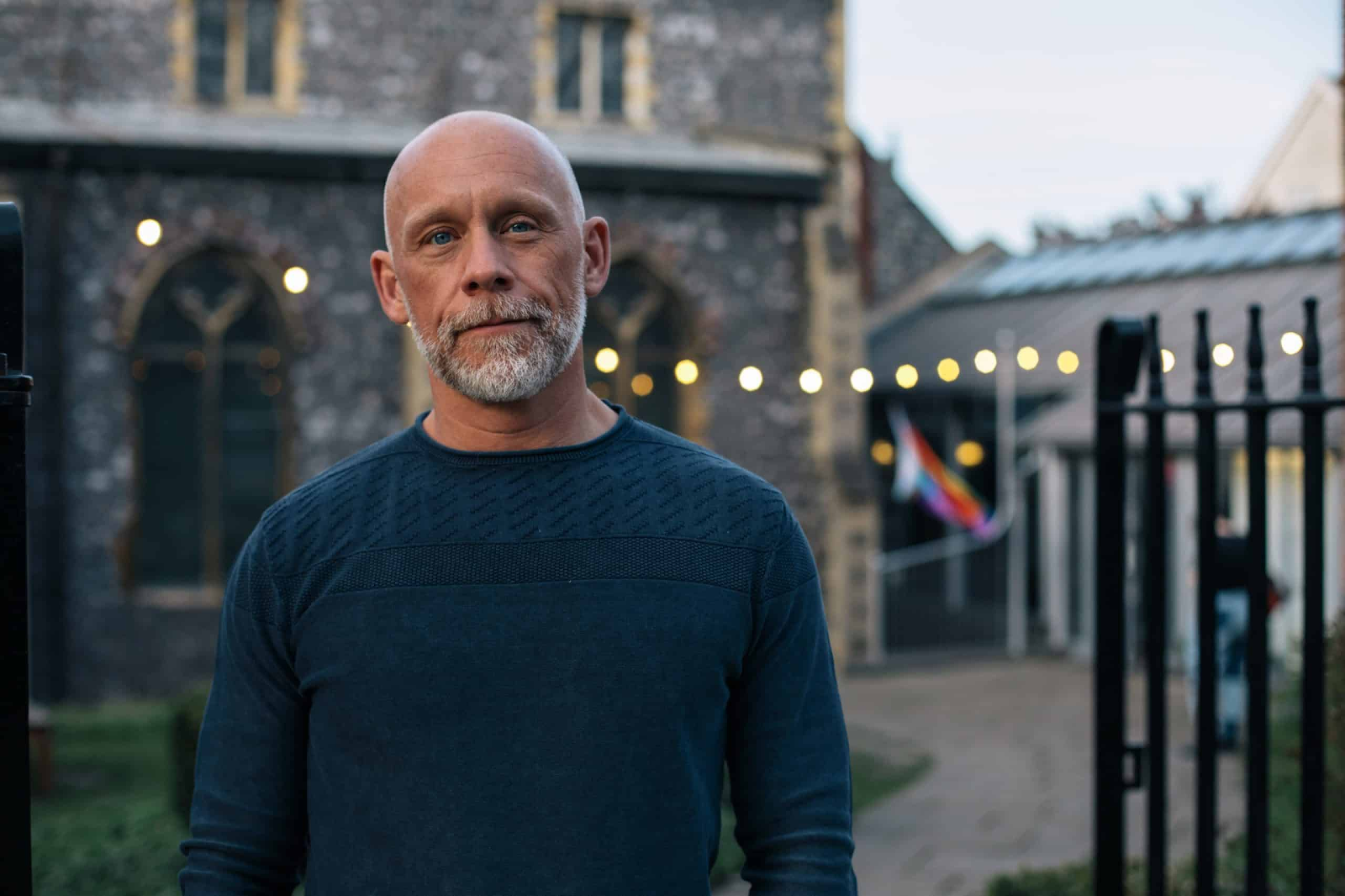With the fourth poetry slam of the Sedona Poetry Slam's 15th season, performance poets will bring high-energy, competitive spoken word to the Mary D. Fisher Theatre on Saturday, March 9, starting at 7:30 p.m.
The top three poets at this slam with earn spots to compete at the BlackBerry Peach Poetry Slam's Arizona Championship, to be held at the Rebel Lounge in Phoenix in April.
Open Slam
Anyone can compete in a poetry slam if they have poems to read and the courage to get on stage. A poetry slam is like a series of high-energy, three-minute one-person plays, judged by the audience. Anyone can sign up to compete in the slam for the $75 grand prize and $25 second-place prize. To compete in the slam, poets will need three original poems, each lasting no longer than three minutes. No props, costumes nor musical accompaniment are permitted. The poets are judged Olympics-style by five members of the audience selected at random at the beginning of the slam.
 |
| Sondraya Bradley, photo by David Jolkovski/Larson Newspapers |
Slam poetry is an art form that allows written page poets to share their work alongside theatrical performers, hip-hop artists and lyricists. Poets come from as far away as Phoenix, Tucson and Flagstaff, competing against adult poets from Sedona and Cottonwood, college poets from Northern Arizona University and youth poets from Sedona Red Rock High School.
 |
| Tempest Juliet, photo by David Jolkovski/Larson Newspapers |
All types of poetry are welcome on the stage, from street-wise hip-hop and narrative performance poems, to political rants and introspective confessionals. Any poem is a "slam" poem if performed in a competition. All poets get three minutes per round to entertain and inspire the audience with their creativity.
 |
| Valence, photo by David Jolkovski/Larson Newspapers |
Mary D. Fisher Theatre is located at 2030 W. SR 89A, Suite A-3, in West Sedona. Tickets are $12. For tickets, call 282-1177 or visit SedonaFilmFestival.org.
 |
| Steven Ojeda, photo by David Jolkovski/Larson Newspapers |
The next poetry slams of the season will be held on
- Saturday, April 13, featuring Briana Grace Hammerstrom of Portland. Ore., by way of Flagstaff;
- Saturday, May 11;
- and finally on Saturday, June 8.
 |
| Lydia Gates, photo by David Jolkovski/Larson Newspapers |
The February poetry slam selected three poets — Lydia Gates, Josh Wiss and Tyler “Valence” Sirvinskas — who will be representing Sedona at the All-Arizona Poetry Slam Championship in Maricopa in March.
 |
| Josh Wiss, photo by David Jolkovski/Larson Newspapers |
The prize money is funded in part by a donation from Verde Valley poetry supporters Jeanne and Jim Freeland.
Email foxthepoet@yahoo.com to sign up early to compete or by the Friday before the slam or at the door the day of the slam. Poets who want to compete should purchase a ticket in case the roster is filled before they arrive.
 |
| MC Tristan Marshell, photo by David Jolkovski/Larson Newspapers |
For more information, visit sedonafilmfestival.com or foxthepoet.blogspot.com. For a full list of slam poetry events in Arizona, visit azpoet.com.
BlackBerry Peach
The top three poets will earn Sedona's three spots at the BlackBerry Peach National Poetry Slam's Arizona State Championships, sponsored by the Arizona State Poetry Society.
Three poets each from open poetry slams in Sedona, Mesa, Prescott, Phoenix and Flagstaff will compete at the 15-poet slam held by Ghost Poetry Slam and hosted by Ben “B-Jam” Gardea.
The overall state champion will win trip sponsored by the ASPS to represent Arizona at the National Federation of State Poetry Societies' BlackBerry Peach National Slam from June 5 to 8 in Roswell, Ga.
 |
| B-Jam, photo by Sedona Poetry Slam |
A regular competitor at the Sedona Poetry Slam, B-Jam is a Phoenix native, married father of three children. Gardea overcame both alcoholism and a rare hip disease that made him unable to walk. After getting sober and a total hip replacement, he had two goals: To share his poetry and and hike a mountain in Sedona. Three years later, B-Jam is the 2023 ASPS State Poetry Slam champion, ranked 10th nationally and has curated writers workshops, featured at poetry events, won a grant to publish a poetry book and is the host and producer of the popular PHX Poetry Slam.
“Poetry has changed my life and I want to be a caretaker of the artform for future generations to explore and become part of, because I know that poetry can make the most profound impact on human beings,” B-Jam said.
 |
| B-Jam, photo by Sedona Poetry Slam |
What is Poetry Slam?
Founded at the Green Mill Tavern in Chicago in 1984 by Marc Smith, poetry slam is a competitive artistic sport designed to get people who would otherwise never go to a poetry reading excited about the art form when it becomes a high-energy competition. Poetry slams are judged by five randomly chosen members of the audience who assign numerical value to individual poets' contents and performances.
 |
| Host Christopher Fox Graham, photo by David Jolkovski/Larson Newspapers |
Poetry slam has become an international artistic sport, with more than 100 major poetry slams in the United States, Canada, Australia and Western Europe. Slam poets have opened at the Winter Olympics, performed at the White House and at the United Nations General Assembly and were featured on "Russell Simmons' Def Poets" on HBO.
 |
| Stacy Eden, photo by David Jolkovski/Larson Newspapers |
Sedona has sent four-poet teams to represent the city at the National Poetry Slam in Charlotte, N.C., Boston, Cambridge, Mass., Oakland, Calif., Decatur, Ga., Denver and Chicago.
 |
| Randy Morris, photo by David Jolkovski/Larson Newspapers |









































